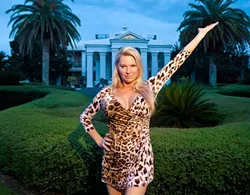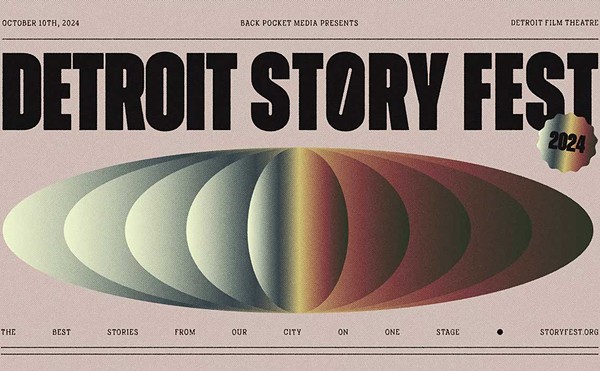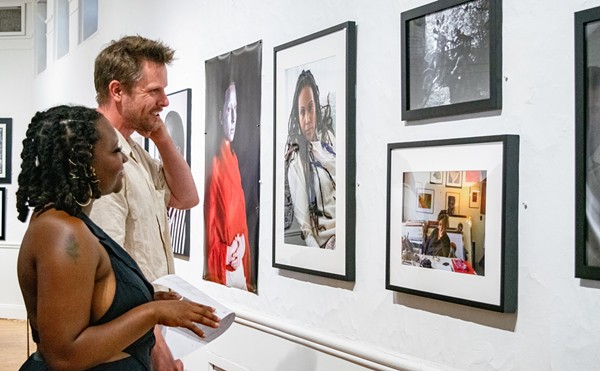The Queen of Versailles| B-
The biggest bombshell in Lauren Greenfield's documentary The Queen of Versailles is a passing boast by subject David Siegel, a billionaire who has made his fortunes by hard-selling timeshares to people who can't afford them. Casually he admits, "I got George Bush elected." When pressed for details he demurs, saying, "It may not necessarily have been legal."
Too bad nothing more is made of Siegel's possible involvement with undermining our country's democratic process. One would think that his chuckling confession might at least warrant some official inquiries.
But such is the hubris of America's über-rich: Rules are for suckers, and avarice is the only virtue. Which may explain why Siegel and his pneumatic trophy wife, Jackie, decide they need to upgrade from their 23,000-square-foot hovel of a mansion to a 90,000-square-foot monstrosity of architectural ego, after viewing the Palace of Versailles in France. Fittingly, they begin construction on America's largest house in Orlando, Fla., where reality is dominated by cartoon-inspired theme parks.
But what starts as a farcical ode to consumerism on steroids quickly turns into an interesting character study as the 2008 recession hits and Greenfield gets a front row seat to Siegel's reversal of fortune. David, the sleazy, unscrupulous business predator, has become the target of bigger, more conniving predators — the banks. His overleveraged Westgate Resorts fall on hard times as access to cheap money dries up and even the most gullible customers rethink their financial priorities (like keeping their homes). Siegel's empire is under siege, his mortgage on the uncompleted Versailles is in default, the family's house staff is cut from more than 20 to 3, and everyone has to scale back — something Jackie and her brood of eight are ill-equipped to handle. The result? Their 17-bathroom mansion begins to look like a gilded double-wide, with dog poop littering the snow white carpets, fast food bags accumulating on the kitchen counters, and pets dying of neglect.
Acting more as a tour guide than an investigator, Greenfield gives us an insider look, albeit with all the vulgar depth of reality TV, at the world of the extremely wealthy as they struggle to downsize. And the Siegels' gauche taste — self-glorifying portraits and throne-like furniture — encourages plenty of smug laughter. Unfortunately, the film never finds a way to connect its subjects' behavior to our own consumer impulses or how the American Dream has been perverted into a rationale for entitled greed.
Instead, we're invited to both embrace and laugh at botoxed and silicone-enhanced Jackie, as she clings to a state of willful ignorance about her gluttony, the state of her marriage, and her husband's faltering business. Endearing but spoiled, this former engineer-model is a textbook case for the unexamined life. Watching Jackie fill cart after Walmart cart with crap the family doesn't need is to witness the new millennium's version of Marie Antoinette.
There's plenty of opportunity for Greenfield to offer sharper commentary or challenge the worldview of her subjects, but she clearly enjoys the company of these selfish boors, Jackie in particular. For much of The Queen of Versailles' second half, Greenfield goes out of her way to show the timeshare matron indulging in small acts of kindness. All which reveal that she is, at heart, a fairly nice person. But her eventual complaint — an unadorned moment of honesty — that she wouldn't have had so many kids if she'd known there'd be fewer nannies to take care of them is just the most profound example of her cluelessness. And when your subject lacks the ability to understand the underlying callousness of such statement, I'm not sure she deserves my sympathy.
In contrast, Greenfield offers up too-brief portraits of the Siegel's house staff, such as the Filipino nanny who lives in the children's abandoned playhouse and hasn't seen her adult son since he was a toddler. Never once is Jackie asked why her long-serving servant has been unable to visit her own children. Surely the billionaire timeshare king could have arranged such things if he cared enough to do so.
And therein lies my problem with a movie like The Queen of Versailles. It is not a social morality tale nor an example of poetic justice. Instead, it is a shallow portrait of a shallow family that casually engages in economic exploitation and violence. The Siegels never truly suffer for their sins of overconsumption. Their financial setbacks are temporary (eventually David's business is growing again and construction on his Versailles has begun in earnest), but the poor schmucks who bought Westgate's overpriced timeshares (a species of the subprime loan market) will be paying for their deluded grab at the high life for many years to come. Good thing they're less revenge-minded than the 18th-century French.






